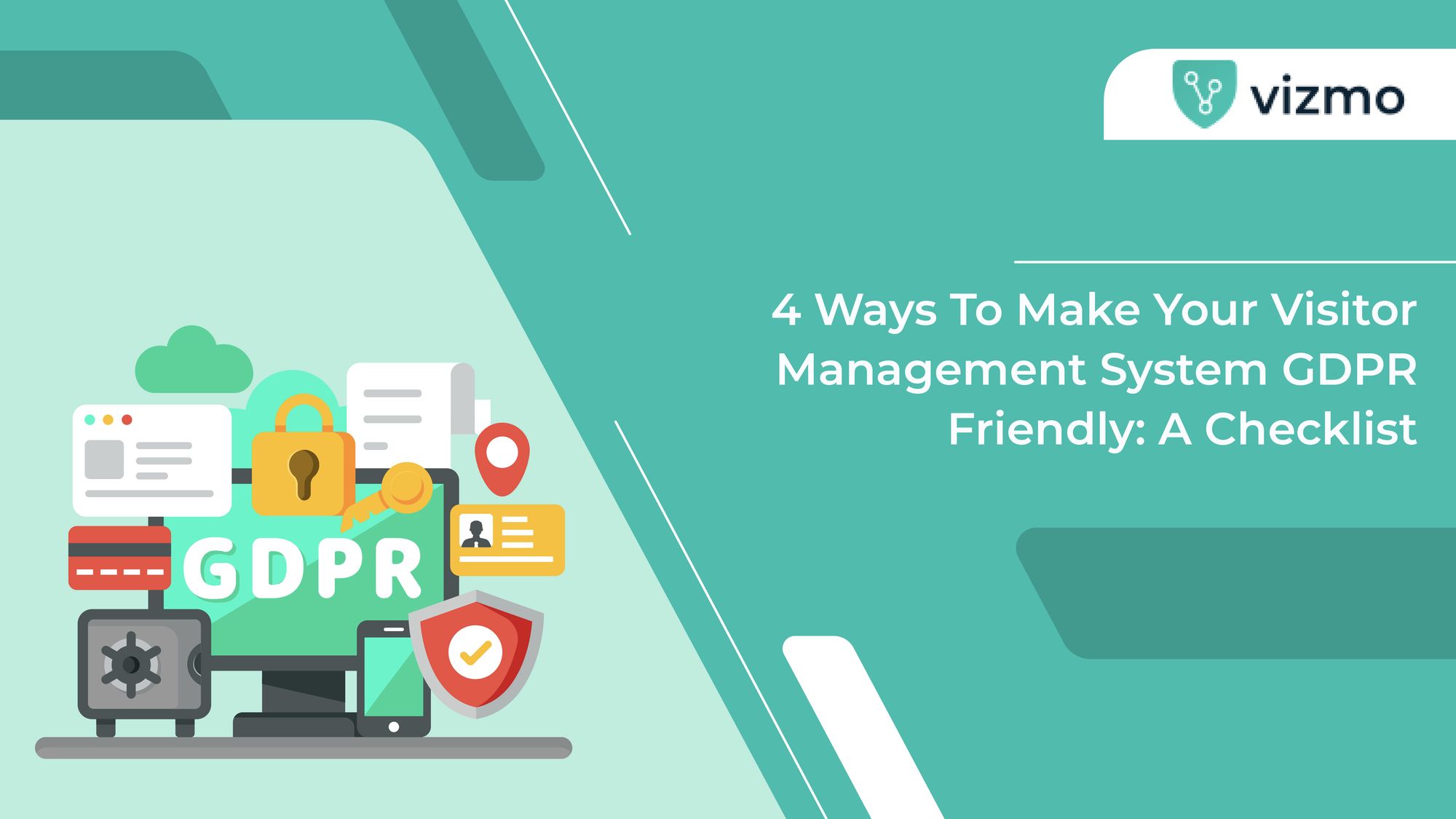4 Ways To Make Your Visitor Management System GDPR Friendly: A Checklist

Visitors often wonder what companies do with their personal data — and for a good reason. 92% of consumers believe companies should be proactive about data protection.
The General Data Protection Regulation (henceforth, GDPR) has been a game-changer for many organizations, especially EU-tied companies that use a visitor management system in India. It gives visitors of these companies the right to know what companies do with their personal information.
So, to ensure your company’s visitor management systemis GDPR-compliant, we have a checklist that’ll help your visitors feel secure about how you use their data.
What Does the GDPR Mean for Your Visitor Management System?
The GDPR ensures that your enterprise visitor management system stores and uses visitor information carefully and responsibly. It gives visitors peace of mind that their personal information is securely stored and that they can retrieve it whenever they want.
On top of all that, a GDPR-compliant visitor management system makes your company look professional (not to mention it gives you bragging rights).
So, what can you do to make your visitor management system GDPR-friendly?
How To Make Your Visitor Management System GDPR Friendly
Here’s how to make your visitor management system GDPR friendly.
1. Tell Visitors What Data You’ll Collect and How You Plan to Use It
Transparency builds trust, which is why you must disclose what data you collect from your visitors.
Let visitors know exactly what data you’ll need from them, even if it’s as simple as an ID or photograph. Alongside this, you’ll also need to inform your visitors why you need their details.
You want to assure visitors that their information is in your hands for a specific purpose. Otherwise, you’re just holding onto sensitive data for no reason at all — something that’ll make visitors feel unnerved.
2. Avoid Collecting Data You Don’t Need
Companies might get tempted to collect more data than necessary from visitors — perhaps for additional security measures or future use. However, the GDPR guidelines don’t allow that (Article 5(1)(b), GDPR).
So, you need to figure out what exactly you’ll need to collect from visitors and set limitations on data collection.
That being said, the GDPR guidelines allow you to collect additional information from visitors, provided it’s for a grave reason, and the visitor understands and agrees.
For example, you wouldn’t require a food delivery person to provide their PAN card. But a visitor or client who’s involved in company finances might need to submit more than just an ID.
3. Give Visitors the Option to Recall Their Data
Data collection doesn’t mean permanent storage. The GDPR gives visitors the right to recall their data and have it erased from your visitor management system.
Visitors might have many reasons to recall their data. Whatever the reason, your duty is to comply and erase their data upon their request.
Let’s suppose a frequent visitor requests for their information to be removed from the system because they’ll no longer be visiting the company. While you’re obligated to erase their information, you can still keep records of their visit for reference.
4. Ensure Visitors About Data Security
Your visitors need to know their personal data is in safe hands. You’ll need to assure them of two things.
Firstly, the security of their data. Encrypting visitor data using industry-standard cryptographic techniques is the best way to secure visitor data. Additionally, you’ll want to avoid all forms of physically storing data as these are liable to theft.
Secondly, have a data breach backup plan. In the extremely rare instance of a data breach, it’s good for companies to have a backup plan to protect visitor data from cybersecurity threats.
Choosing a GDPR-Compliant Visitor Management System
Companies need to choose a touchless visitor management system that offers convenience, efficiency, and, most importantly, security. But if it doesn’t protect visitors’ personal data, then it’s essentially a failed system.
Vimzo’s touchless visitor management system checks every visitor data security requirement off the list. In addition to offering our visitors a hassle-free check-in and check-out experience, we ensure that they:
● Don’t give us more personal information than necessary.
● Know exactly what we collect from them.
● Know why and when we use their data.
● Have the right to delete their personal data from our cloud.
● Understand our data security protocols.
Visit Vizmo’s website to learn more about how our industry-leading contactless visitor management system can help keep your workplaces safe, productive, and GDPR-compliant.
